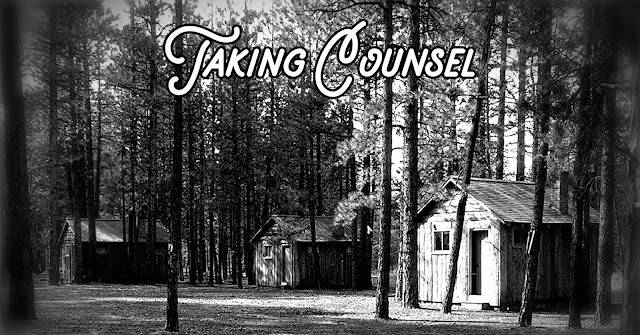Read it from the Original.
Start at the Beginning.
Morning Prayers.
(Page 196)
I. "Lean not upon thine own prudence; . . . be not wise in thine own conceit" (Prov. iii. 5, 7). One important element in prudence is docility in taking counsel. No one is qualified to be judge in his own case; and this, which is true in natural affairs, is no less true in spiritual ones. Every one suffers at times from deficiency of information, or some failure of his faculties, or the impartiality of judgment is clouded by the unconscious intrusion of personal considerations. Points of view are numerous, and no one can grasp them all at once. The most self-reliant are the least qualified to judge alone; for the excess of self-reliance arises not from perfected capacity, but from inexperience, and from ignorance of personal deficiencies and external difficulties. Obstinacy increases with incapacity, and such pride is followed by a fall. The seeking of counsel is evidence of humility; and it is to the humble that God accords enlightenment and grace. How many troubles and catastrophes would be avoided if each remembered that he is not infallible and self-sufficing! "My son, do thou nothing without counsel, and thou shalt not repent when thou hast done" (Eccli. xxxii. 24).
II. God uses the instrumentality of His creatures for the accomplishment of His purposes, and He conveys His direction to us principally by means of other men. Moses, who spoke face to face with God and could consult Him at any moment in the Tabernacle, received with humility the counsel of Jethro who was not even of the chosen race. St. Paul had been converted by the voice of God Himself, yet he was made to submit himself to the hands of Ananias; he had been raised to the third heaven and had seen marvellous visions, yet he consulted with the Apostles as to his methods of action. God helps us directly with His grace, but He has appointed advisers whom we must consult in temporal and spiritual matters. The function of advising is (Page 197) committed chiefly to the Church which is "the pillar and the ground of truth" (1 Tim. iii. 15); also to parents, rulers, physicians, friends, who from their position or from their talents are evidently pointed out to us as worthy of our confidence, and endowed for our occasion with the gift of counsel. We must exercise much care in the selection of our advisers: "Be in peace with many, but let one of a thousand be thy counsellor" (Eccli. vi. 6). It falls to every one at some time to give counsel as well as to take it. Ask God in prayer to enlighten those from whom you seek advice, and to enlighten you for the benefit of those whom you advise. Help others in all sincerity and charity as being the minister of God to them; and show respect and confidence towards such as you have maturely chosen to be your advisers.
III. Great circumspection is required in the taking of counsel, on account of the multitude of false counsellors, and the plausible appearances with which they cover themselves. You must not trust the first that comes; but "try the spirits whether they be of God: because many false prophets are gone out into the world" (1 John iv. 1). Our protection against them must come from God and our own good principles. If our minds and souls be sound, and if we truly seek after justice, we shall find in ourselves an antidote to the poison of false counsellors, an instinct that will aid us to detect their deceptions. On those who do not conscientiously seek true wisdom the care of God in providing true counsellors is thrown away. They have a predilection for evil, a predisposition to catch at once the germs of the infection of falsehood. So it was that Roboam rejected the counsel of the elders for that of his depraved companions, and thereby rent the unity of the kingdom for ever. So it was that lying spirits entered into the prophets of King Achab and led him to destruction. Pray God to discredit the false prophets who mislead His people, and to reveal their wickedness.


